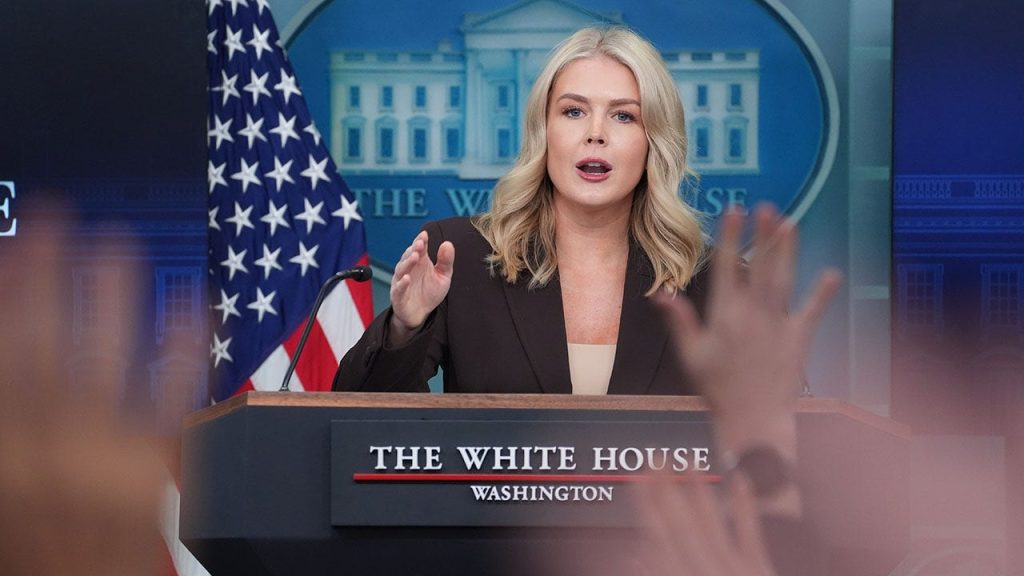Trump Administration Finds Creative Solution to Keep WIC Program Running During Shutdown
In a decisive move to protect vulnerable families during the ongoing government shutdown, President Donald Trump has authorized using tariff revenue to sustain the Special Supplemental Nutrition Program for Women, Infants and Children (WIC). White House press secretary Karoline Leavitt announced this initiative on Tuesday, emphasizing that the administration “will not allow mothers and children to go hungry” despite the political impasse in Washington. This short-term solution, developed by the Office of Management and Budget, aims to address what would have been a critical funding gap for a program that serves approximately 6 million low-income women and children across the nation.
The WIC program, which provides essential services including healthy food vouchers, breastfeeding support, and nutrition education for low-income families, had been projected to run out of money within weeks as the shutdown continues. With more than $7 billion spent on the program during fiscal 2024 according to the Department of Agriculture, the stakes are high for millions of Americans who depend on this assistance. The administration’s plan involves redirecting revenue from Section 232 tariffs to keep the program operational, though specific amounts have not been disclosed. Officials have described the solution as sufficient to cover costs “for the foreseeable future,” providing temporary relief while congressional negotiations continue.
The political context surrounding this decision reflects the deep partisan divide over government spending and priorities. Leavitt’s announcement placed blame squarely on Democrats for “cruelly voting to shut down the government,” suggesting that their actions had forced WIC into its precarious financial position. The press secretary emphasized that the Trump White House refuses to let “impoverished mothers and their babies go hungry because of the Democrats’ political games.” This framing continues the ongoing narrative battle between the parties, with Republicans attributing the shutdown to Democratic resistance to spending restraints, while Democrats have historically criticized Republicans during budget negotiations over WIC eligibility and funding levels.
The administration’s approach represents what officials have called a “creative solution” to an immediate crisis. By tapping into Section 232 tariff revenue—funds collected from duties imposed on certain imported goods for national security reasons—the White House has found a temporary workaround to congressional gridlock. This unusual funding mechanism highlights both the severity of the situation and the administration’s determination to protect what it considers essential services during the government shutdown. However, questions remain about the sustainability of this approach if the shutdown continues for an extended period, as officials have not clarified how long the tariff funds will last or whether additional transfers might be needed.
The WIC program’s vulnerability during government shutdowns illustrates the broader human impact of political stalemates in Washington. Unlike some other assistance programs that receive mandatory funding, WIC depends on discretionary appropriations that must be renewed regularly by Congress. When these appropriations lapse during shutdowns, millions of mothers, infants, and children face potential disruptions to their nutritional support. The program’s focus on early childhood nutrition makes these disruptions particularly concerning from both public health and developmental perspectives. By prioritizing WIC’s continued operation, the administration has acknowledged the critical nature of early childhood nutrition even amid broader disagreements about government spending.
As the shutdown continues, this temporary funding solution for WIC provides a moment of reprieve for program beneficiaries, but the broader political standoff remains unresolved. The White House has described the tariff transfer as a stopgap measure while negotiations continue, indicating that a more permanent solution will ultimately require congressional action. The situation underscores the complex interplay between political principles and practical governance, as both parties maneuver to advance their policy priorities while managing the real-world consequences of government dysfunction. For the millions of Americans who rely on WIC and other affected programs, the hope remains that these temporary solutions will provide stability until a more permanent resolution to the shutdown can be achieved.


